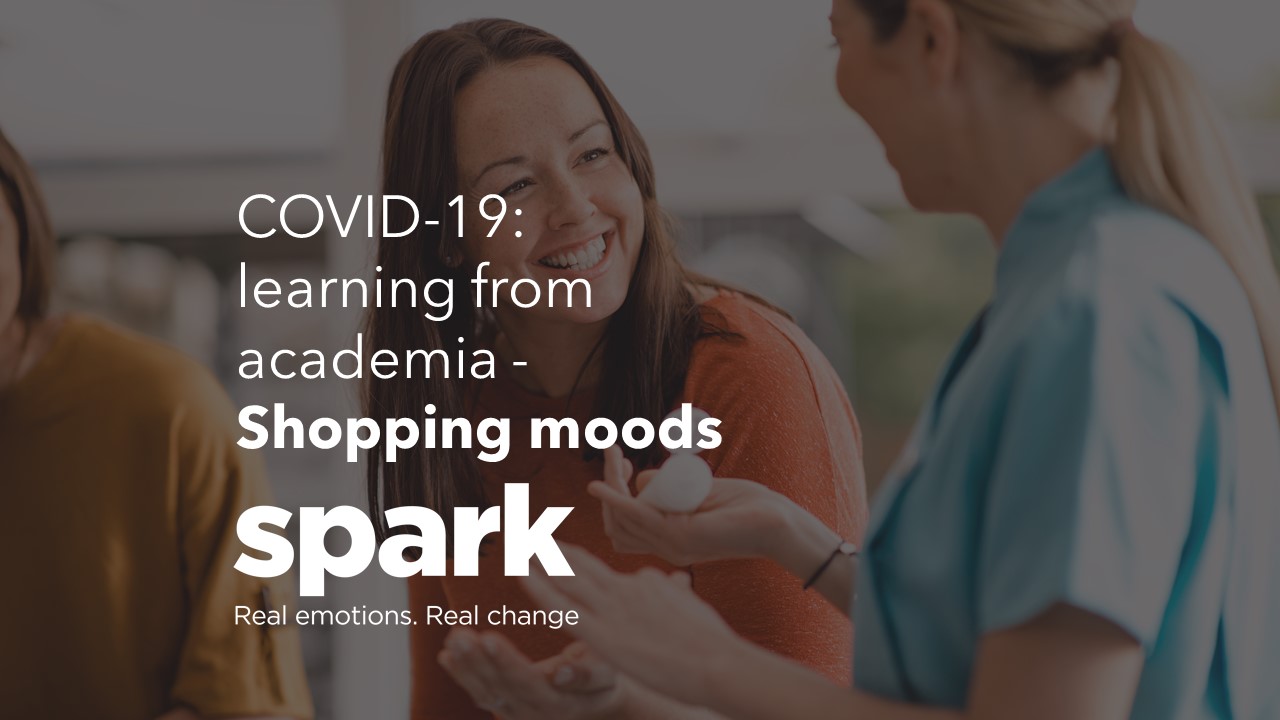Learning from academia is a crucial element of our research and in this article, we talk about how COVID-19 will impact people#s shopping moods.
Because the press is continually full of negative news stories, there is a negative impact on the country’s mood. In effect, the popular media is replicating a common technique used by psychologists to induce negative feelings in a laboratory based experiment, getting people to read or watch negative news stories.
The science bit
When shoppers are in a negative mood, we know that they are far more likely to self-gift,
that is buying small gifts for themselves in an attempt to boost their own mood. Roughly speaking we expect that between 1/2 and 2/3 of all self-gifting behaviour can be explained by this mood-repair motivation.
Despite negative emotions encouraging self purchases, retailers should still attempt to put consumers in a positive mood, due to the fact that we know shoppers spend more money when in a positive mood. While this example may seem trivial, retailers should look at trying to ensure consumers are in a positive mood.
We know that shoppers who are in a more positive mood, spend more money, tell more people about their positive experience, and view the store in a more positive light than those who are in a negative mood.
It is unlikely that people will consider shopping to be a particularly pleasurable experience in the current climate. However, there are a few techniques retailers can use to influence consumers mood as they shop, even in these ‘odd times’.
For example, presenting consumers with an unexpected gift (something as small as a sweet), or a free coffee, or playing happy music (often music in a major key), have all been shown to induce a positive mood.

Key take-away: Every sensory stimulus that a shopper is exposed to, can and will alter their mood. In these times of uncertainty, there is a need to reassure shoppers as much as possible, appealing to all their senses: What they look at, hear, smell, touch and even taste in store all contribute.
If you would like to read more like about how behaviour has been impacted by Covid-19, click here for more articles

Written by Scott Willey, Associate Director at Spark Emotions
If you have any questions, feel free to reach out to Scott via email scott.willey@sparkemotions.com or connect with him on LinkedIn





